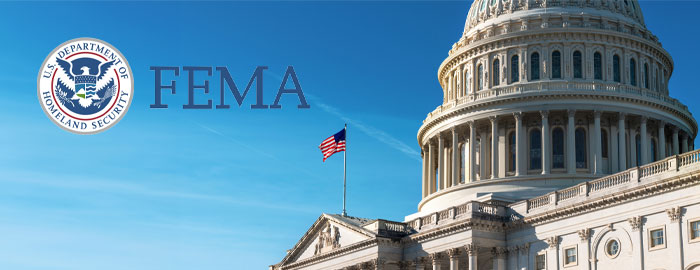
Washington, D.C. (Sept. 26, 2024) – Addressing the role and effectiveness of the U.S. Federal Emergency Management Agency’s (FEMA) focus on building codes in mitigating the impact of disasters, Jordan Krahenbuhl, executive director of the Plumbing-Heating-Cooling Contractors Association (PHCC) of Nevada and former IAPMO® Board of Directors member, was on Capitol Hill on Wednesday to advocate for the inclusion of all national model construction codes in FEMA’s numerous guidance documents.
Testifying before the U.S. House Committee on Transportation and Infrastructure’s Subcommittee on Economic Development, Public Buildings, and Emergency Management, Krahenbuhl explained that FEMA’s communications related to building codes frequently reference a single vendor’s product to the exclusion of other model codes and standards that build community resiliency and are widely used in the marketplace.
“Including all of the national model construction codes is better for the American taxpayer, avoiding monopolies, which often result in higher prices and less innovation,” Krahenbuhl said. “FEMA could directly address this concern and clarify that jurisdictions have multiple tools from which to choose when deciding how best to meet their resiliency needs.”
Krahenbuhl advised the committee that FEMA’s policies also affect the construction industry negatively by unintentionally interfering with state and local code adoption processes and alienating its key partners in the industry.
“It is difficult for many businesses in the plumbing and mechanical sector that I represent to refer to FEMA’s initiatives because it seems to want us to promote changing the construction codes used by our industry — an expensive change that would not improve the overall resiliency of our communities,” he said.
Krahenbuhl also noted that by being more inclusive in its recognition of national model codes, FEMA could draw support from a number of important stakeholders in the construction industry and strengthen its efforts to address resiliency at the community level.
Krahenbuhl was joined by representatives from the National Association of Home Builders (NAHB) and the National Emergency Managers Association (NEMA) in testifying that the value of building codes in disaster mitigation and recovery relies on flexibility and local considerations when it comes to FEMA Building Resilience Infrastructure in Communities (BRIC) awards.
“It is essential for state and local governments to retain the flexibility to adopt the hazard-resistant codes that are best for them, even if those codes are outside the ICC’s suite of model codes,” said Buddy Hughes, first vice chair of the NAHB Board of Directors. “Communities must also be free to tailor those codes to their specific geographic and jurisdictional needs, so that they may effectively protect and safeguard their citizens.”
FEMA coordinates the federal response to disasters that receive a presidential disaster declaration, working closely with officials in states, tribal nations, and territories as they respond to disasters and make requests for federal support. The agency also helps communities become more resilient through its Pre-Disaster Mitigation grant program, which makes federal funds available to jurisdictions to reduce the risk to individuals and property from future natural hazards, while also reducing reliance on federal funding from future disasters.
“I fear that FEMA is using a one-size-fits-all approach that fails to take into account where different sets of codes that reflect industry standards or respond to local hazards might be better suited to the needs of a community,” said ranking member U.S. Rep. Dina Titus (D-Nevada).